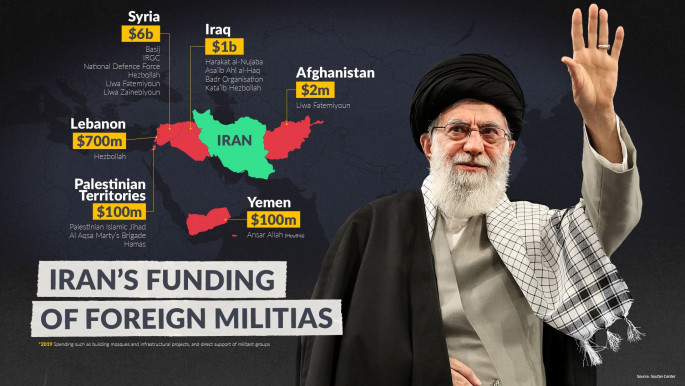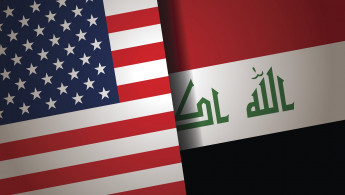New round of US-Iraqi strategic dialogue begins amid threats from pro-Iran militia groups
A new round of the US-Iraqi strategic dialogue began on Wednesday, presided over by US Secretary of State Antony Blinken and Iraqi Foreign Minister Fuad Hussein, as pro-Iranian Iraqi militias threatened to continue attacks on US forces if they didn’t withdraw from Iraq.
This is the third round of the US-Iraqi strategic dialogue and the first to be held under the Biden administration. It will be held virtually due to the ongoing coronavirus pandemic.
An Iraqi official who preferred to remain anonymous told The New Arab’s Arabic-language service that “security, the fight against IS, and the issues of health and economics” were on the agenda of the dialogue.
He added that the talks were likely to discuss Iraqi militias and their infiltration of security forces.
The dialogue would also “clarify if there was a new American policy towards Iraq or not,” under the Biden administration, the official said.
“This is what we are trying to understand and deal with”.
The talks coincided with a visit by General Esmail Qaani, the head of the Quds Force division of the Iranian Revolutionary General Guard Corps (IRGC) to Baghdad.
|
|
Qaani succeeded Qasem Soleimani, the previous leader of the Quds Force, who was killed in an American airstrike near Baghdad Airport in January 2020. He met with leaders of several pro-Iranian Iraqi Shia militia groups during his visit.
The pro-Iranian militias issued a statement on Wednesday under the name of the “Iraqi Resistance Coordination Commission”, strongly criticizing the dialogue and predicting that its final result would be “trivial” and an attempt to evade a previous Iraqi parliament resolution calling for the withdrawal of all US troops.
The statement warned that the militias were “fully prepared to open fronts against the American occupation presence throughout Iraq and deal focused and painful strikes to this presence.”
Last October, the militias, which include Kata’ib Hezbollah, Al-Nujabaa, and Asaib Ahl Al-Haq, announced that they would cease their rocket attacks on bases in Iraq where US troops were present, pending US withdrawal from the country.
A spokesman for Kata’ib Hezbollah, Jaafar al-Husseini, was quoted by AFP as saying that the US-Iraqi dialogue “has no value because the Iraqi people have already decided that they want an end to the American occupation".
However, Iraqi Prime Minister Mustafa Al-Kadhimi, a former intelligence official, is expected by Western and Iraqi officials to ask the US to withdraw its troops over a period of several years, rather than immediately, as the militias wish.
The Iraqi official who spoke to The New Arab’s Arabic language said that Iraq still needed “non-combat military support from the US, relating to armament, training, and logistical support, as well as air cover from the international [anti-IS] coalition”.
Iraq’s Kurdish and Sunni communities are wary of an immediate American withdrawal because of fears that that would give Iran and its militias more influence in the country.
Read more: The Iraq Report - US military drawdown will embolden Iran's proxies
Kadhimi has recently made overtures to US allies in the Middle East, visiting Saudi Arabia and the UAE and receiving the Egyptian and Jordanian foreign ministers.
Ihsan al-Shammari, an analyst with the Iraqi Centre for Political Thought told AFP that with this and the continued dialogue with the US, Kadhimi was sending a message to Iran that “Iraq does not depend on Tehran for its diplomatic decisions, as Iran and its allies demand.”
Follow us on Facebook, Twitter and Instagram to stay connected





 Follow the Middle East's top stories in English at The New Arab on Google News
Follow the Middle East's top stories in English at The New Arab on Google News


